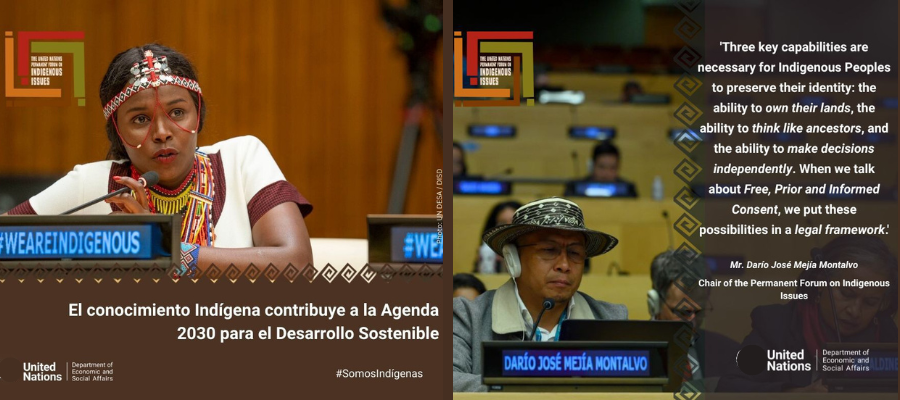
The twenty-second session of the UN Permanent Forum on Indigenous Issues (UNPFII) took place at the United Nations Headquarters, New York, from 17-28 April 2023. The priority theme for this year is: “Indigenous Peoples, human health, planetary and territorial health and climate change: a rights-based approach.”
After decades of Indigenous leaders pushing for inclusion and representation at the United Nations, on July 28, 2000, the UNPFII was established as a high-level advisory body to the UN Economic and Social Council by resolution 2000/22. Since 2002, the UNPFII has been meeting annually. The Forum can be utilized by Indigenous Peoples to raise awareness, bring policy change to other UN bodies, and influence how Indigenous rights are implemented at the local and national levels.
The Forum gave the following recommendations and future actions:
• International Decade of Indigenous Languages (2022-2032)
Member States implement actions to support the revitalization, strengthening and developing of Indigenous People’s Languages. Including the adequate provision and appropriate support and resources, focusing on Indigenous-led initiatives, especially in circumstances in which the languages are critically endangered.
• Indigenous women and girls
Alarmed at the widespread reports of criminalization and killings of Indigenous women defending their rights and their lands and resources, they recommended that UN Women conduct and present a study by 2025 on the impacts of colonization on the rights of Indigenous women and girls. Member States were reminded of their obligations under the Convention to Eliminate Violence Against Women (CEDAW).
• Indigenous Platforms within the UN entities
Urged Member States and United Nations entities to “ensure the implementation of free, prior and informed consent in all actions and measures, especially in the context of environment, biodiversity, climate change, food systems and sustainable development.” Indigenous representations in different UN entities and forums.
A key recommendation related to this year’s theme is that “Member States and United Nations entities, in particular the World Health Organization (WHO), recognize that Indigenous views of human and planetary health must be central to the 2030 Agenda for Sustainable Development and emphasizes the central need to stabilize and regenerate the biosphere as essential for protecting humanity.
Indigenous communities have looked after our planet for millions of years, we need to start listening to their collective wisdom and close knowledge of our planet.
You can read the full recommendations HERE.
You can watch the opening of the Forum HERE.
